Introduction: Why Dust Management Matters in Home Workshops
Whether you’re new to DIY repairs or a seasoned home renovator, one challenge unites all home workshop enthusiasts: managing the mess. Sawdust, drywall particles, and general debris accumulate quickly and can turn even a small job into a major cleanup headache. But beyond the nuisance, airborne dust poses real health risks and can damage tools over time. Choosing the right equipment for cleaning—specifically, deciding between a shop vacuum and a dust extractor—is critical for keeping your workspace clean, safe, and efficient. Yet many DIYers confuse these two tools or assume they’re interchangeable. In reality, shop vacs and dust extractors serve different purposes and offer unique features that can make a world of difference depending on your projects and priorities. This in-depth guide will compare shop vacuums and dust extractors, break down their key differences, provide practical selection advice, and share expert tips to keep your workshop dust-free and your lungs clear.
Understanding the Basics: Shop Vacuums and Dust Extractors Defined
What Is a Shop Vacuum?
Shop vacuums—often called wet/dry vacs—are powerful, portable vacuum cleaners designed to handle heavy-duty debris in workshops, garages, and construction sites. Their rugged design lets them suck up everything from sawdust and screws to small amounts of water. Most shop vacs use a simple filtration system, typically a foam or cartridge filter, and are available in a range of capacities and power levels.
What Is a Dust Extractor?
Dust extractors are specialized machines engineered to capture fine airborne dust at its source—usually directly from power tools. They use advanced filter systems (often HEPA-rated) to trap the smallest particles, including those invisible to the naked eye. Dust extractors are essential for maintaining air quality, especially during projects that generate hazardous dust, like sanding, routing, or cutting MDF and drywall. Many models include automatic tool activation and anti-static hoses for enhanced safety and convenience.
Key Differences: Performance, Filtration, and Features
Suction Power and Airflow
- Shop Vacuum: Typically offers higher maximum suction (measured in peak horsepower) and larger hose diameters, making them ideal for picking up large debris and liquids.
- Dust Extractor: Prioritizes consistent airflow (measured in CFM—cubic feet per minute) and static pressure. Designed to maintain suction with fine dust and through long, narrow hoses connected to tools.
Filtration Quality
- Shop Vacuum: Basic filtration, often limited to standard cartridge or foam filters. Some premium models offer HEPA filters, but these are not always standard.
- Dust Extractor: Advanced filtration is the norm—usually HEPA or ULPA filters capable of capturing 99.97% of particles down to 0.3 microns. This is crucial for hazardous dusts (e.g., silica, MDF).
Tool Integration and Automation
- Shop Vacuum: Manual operation; you must turn it on and off yourself. Adapters for tool connection are sometimes available, but rarely included, and fit can be a challenge.
- Dust Extractor: Designed for seamless integration with power tools. Most offer automatic start/stop triggered by the tool, anti-static hoses, and custom adapters for major tool brands.
Noise Levels
- Shop Vacuum: Often quite loud, especially at higher horsepower (85–95 dB not uncommon).
- Dust Extractor: Typically engineered for quieter operation (60–75 dB), making them more pleasant for indoor, prolonged use.
Size, Portability, and Capacity
- Shop Vacuum: Available in a variety of tank sizes (2 to 16+ gallons). Most are bulky but feature wheels and sturdy handles for mobility.
- Dust Extractor: Generally more compact but may have smaller tanks (3–12 gallons). Designed for portability with smooth-rolling casters, sometimes stackable or with tool storage on top.
Practical Applications: Which Tool for Which Job?
When to Use a Shop Vacuum
- General workshop cleanup: Sawdust, wood chips, nails, screws, and debris on floors or benches
- Wet messes: Spilled water, coolant, or minor floods
- Large debris: Drywall chunks, insulation scraps, leaves
- Car cleaning: Floor mats, trunk, cargo areas
When to Use a Dust Extractor
- Tool-connected dust collection: Sanding, routing, sawing, or grinding that produces fine or hazardous dust
- Renovation work: Cutting tile, concrete, MDF, or drywall (especially when local regulations require HEPA filtration)
- Jobs requiring excellent air quality: Enclosed spaces, basements, or around children and pets
Cost Breakdown: Initial Investment and Long-Term Value
Shop Vacuum Cost Considerations
Shop vacuums are generally more affordable, with entry-level models starting around $50 and premium versions topping out at $300. Replacement filters and bags are inexpensive, but shop vacs often go through filters faster when used on fine dust. Expect to pay extra for HEPA upgrades or specialized tool adapters.
Dust Extractor Cost Considerations
Dust extractors require a higher upfront investment. Quality models with genuine HEPA filtration start at $300 and can exceed $900 for industrial-grade units. However, they protect your health, comply with worksite regulations, and may increase the lifespan of both your tools and your lungs. Replacement filters (especially HEPA) are more expensive but last longer when used as intended.
Health & Safety: Why Filtration Matters
The Risks of Fine Dust
Particles generated by sanding, sawing, and grinding are small enough to penetrate deep into your lungs. Woods like oak and MDF, as well as drywall and concrete, can create hazardous dust containing chemicals or crystalline silica, which is a known carcinogen. Inadequate dust management increases your risk of respiratory disease and allergies, and can also cause premature wear to power tools due to dust infiltration.
Filtration Standards Explained
- HEPA (High-Efficiency Particulate Air): Captures 99.97% of particles ≥0.3 microns—essential for removing fine, hazardous dust.
- ULPA (Ultra-Low Penetration Air): Even higher filtration efficiency, but rarely needed outside specialized industries.
- Standard Cartridge/Bag Filters: Adequate for large debris, but allow fine dust to pass back into the air.
Compatibility: Tool Connections and Adapters
Modern dust extractors usually include a universal or brand-specific tool connection port, anti-static hose, and sometimes a power outlet for automatic activation. Shop vacs may require aftermarket adapters or DIY solutions to fit your tools. If you use a variety of power tools with different port sizes, check for available adapters before you buy.
Maintenance: Keeping Your Machine in Top Shape
Shop Vacuum Maintenance Tips
- Regularly empty tank and clean or replace filters
- Check hoses for clogs and cracks
- Lubricate wheels and check for loose components
- Store indoors to prevent deterioration of seals and cords
Dust Extractor Maintenance Tips
- Monitor filter load indicator (if equipped) and change HEPA filters per manufacturer instructions
- Inspect tool connectors for proper seal
- Clean anti-static hoses with mild soap to prevent buildup
- Test auto-start functionality regularly
Real-World Case Studies: Matching the Tool to the Job
Case Study 1: Weekend Woodworker
Sam, a hobbyist who builds furniture in his garage, initially used a shop vacuum for all cleanup. However, after developing allergies and noticing persistent dust on shelves, he upgraded to a mid-range dust extractor with auto-start. Now, every sanding session is virtually dust-free, and his symptoms have improved.
Case Study 2: DIY Home Renovator
Maria tackled a basement remodel with just a shop vacuum. While it handled demolition debris well, she struggled to keep up with the volume of fine drywall dust. After renting a dust extractor for the sanding phase, she noticed a dramatic reduction in floating dust and easier cleanup.
Case Study 3: Budget-Conscious Homeowner
Alex needed a solution for both outdoor yard debris and occasional workshop use. He chose a large-capacity shop vacuum for versatility and purchased a HEPA filter and universal tool adapter separately. This setup provided a good compromise between cost and performance for his varied needs.
Expert Tips: Maximizing Performance and Safety
- Always use the recommended filter type for your application—upgrade to HEPA for sanding, routing, or cutting MDF, tile, or drywall.
- Connect your dust extractor to power tools whenever possible, and use auto-start features to ensure dust is captured from the moment you begin work.
- Empty collection tanks before they are completely full; suction drops significantly as debris accumulates.
- Wear a quality respirator when working with hazardous dust, even if using a dust extractor.
- Seal off your work area with plastic sheeting for major dust-generating projects to prevent house-wide contamination.
How to Choose: A Step-by-Step Selection Guide
- Assess Your Primary Use: For tool-connected, fine-dust applications, prioritize a dust extractor. For general cleanup and wet/dry messes, a shop vacuum may suffice.
- Evaluate Filtration Needs: If you’ll be working with hazardous materials (MDF, tile, concrete), choose HEPA filtration.
- Consider Tool Compatibility: Make sure adapters are available for your tools, or choose a dust extractor with universal connections.
- Check Noise Levels: If you’ll be working indoors or for long periods, look for quieter models.
- Factor in Budget: For occasional, light-duty use, a shop vac with upgraded filter may be enough. For frequent or health-critical use, invest in a quality dust extractor.
Conclusion: Making the Clean, Safe Choice for Your Workshop
Controlling dust and debris is about more than just keeping your home workshop tidy—it’s a fundamental part of protecting your health, your tools, and the quality of your work. While shop vacuums and dust extractors may look similar, their differences in filtration, performance, and integration can have a significant impact on your DIY experience. Shop vacs are powerful, versatile, and budget-friendly for general cleanup and wet/dry messes. Dust extractors, on the other hand, are precision machines built for fine dust collection, superior filtration, and seamless tool integration—especially important for jobs that generate hazardous or persistent dust.
Choosing the right machine starts with an honest assessment of your typical projects, workspace size, and health priorities. If your work involves a lot of sanding, routing, or cutting indoors, a dust extractor with HEPA filtration is worth every penny. If your needs are more about post-project cleanup or outdoor debris, a shop vacuum may be the perfect fit. In many workshops, both tools have their place, each excelling at different tasks. Ultimately, the best investment is the one that keeps your space—and your lungs—clean and safe, allowing you to focus on what matters most: building, repairing, and upgrading your home with confidence.
Ready to make your choice? Use the tips and comparisons above to find the vacuum or extractor that fits your needs, and enjoy a cleaner, healthier, and more productive DIY journey ahead.

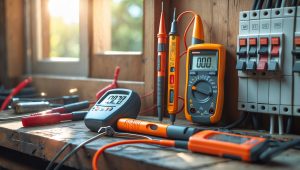
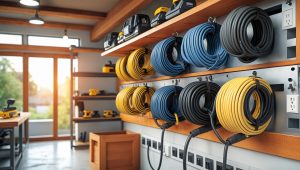


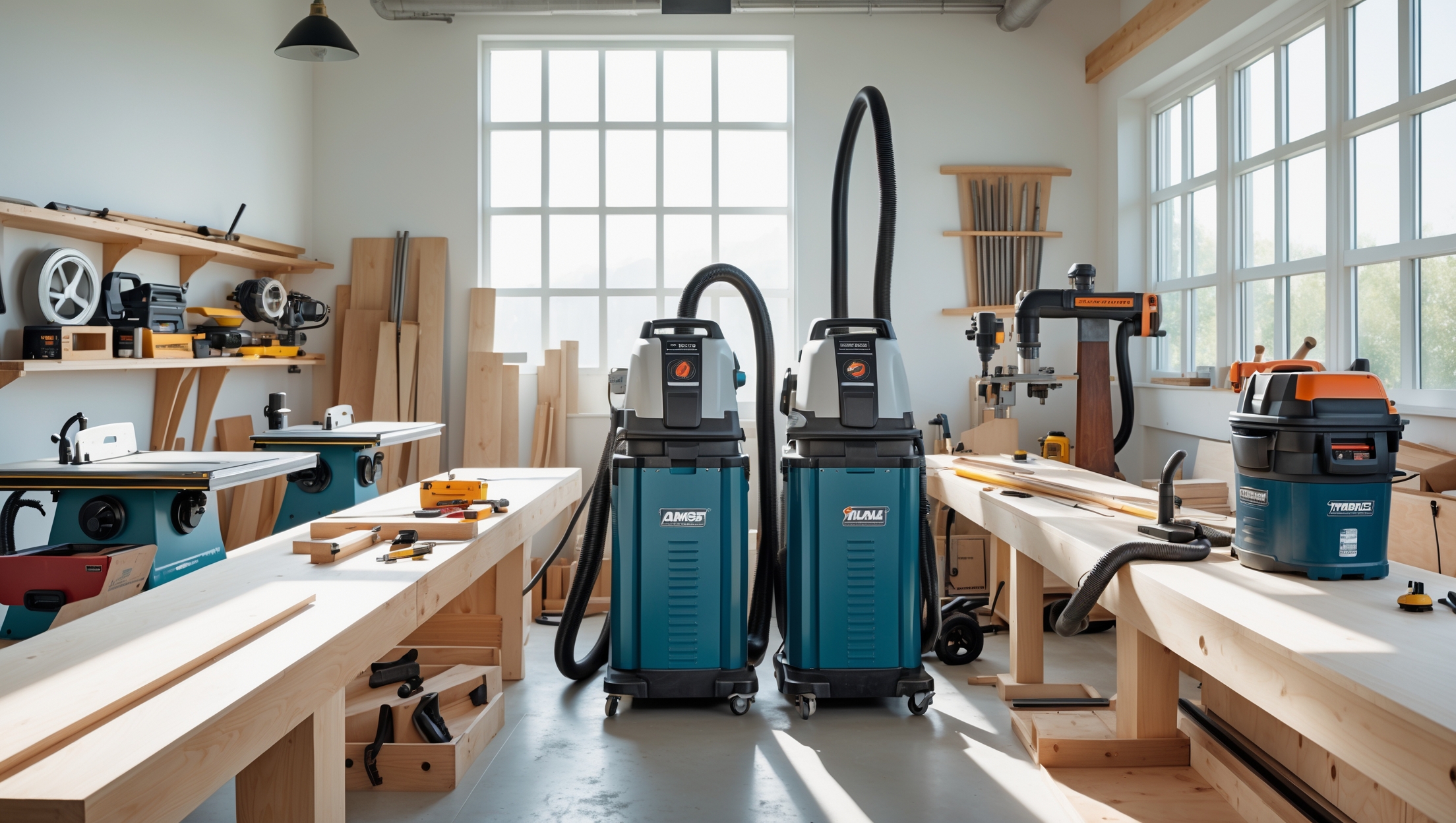
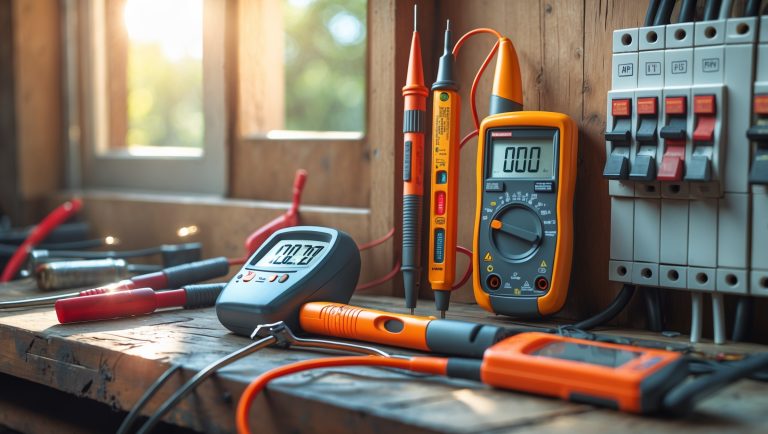
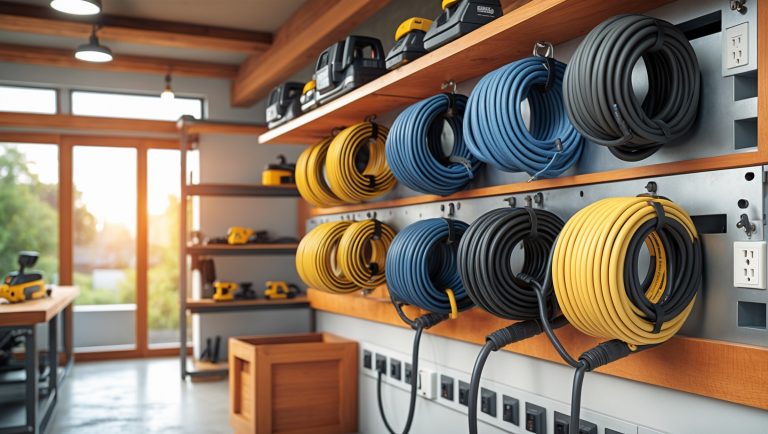
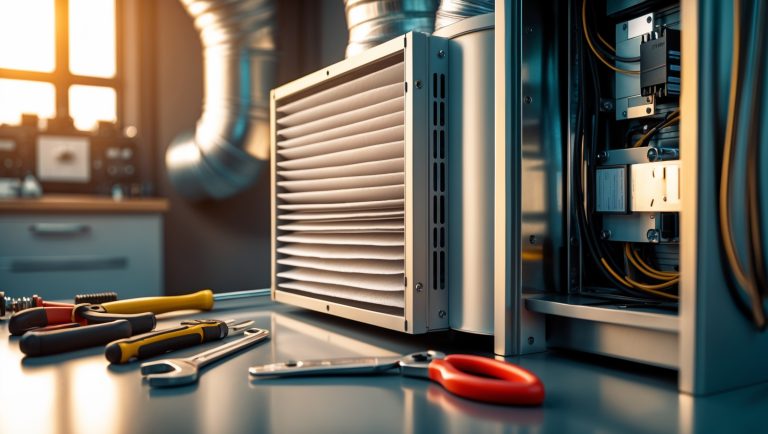

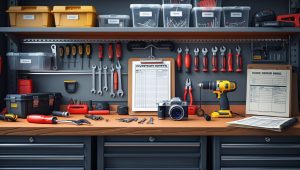
If I’m setting up my first home workshop and have a tight budget, should I invest in a basic dust extractor or would a higher-end shop vac be a smarter starting purchase? Which option handles a wider range of DIY tasks well?
For a first home workshop on a tight budget, a higher-end shop vac is usually the smarter starting purchase. Shop vacuums handle a wider variety of DIY tasks, like cleaning up debris, sawdust, and even small spills. They offer good versatility for general workshop use, whereas basic dust extractors are more specialized for fine dust from woodworking tools. You can always upgrade to a dust extractor later if you start using more dust-producing tools regularly.
I’m curious about connecting these machines directly to power tools. Do most regular shop vacuums work with standard tool ports, or would you need extra adapters or hoses compared to dust extractors? Tips on making the setup efficient would be really helpful.
Most regular shop vacuums aren’t designed to fit power tool ports directly and often need extra adapters or hoses. Dust extractors usually have ports or hoses that are compatible with common tool sizes. To make the setup efficient, check the port sizes on both your tool and vacuum, use a universal adapter if needed, and keep your hose as short as practical to maintain strong suction.
If I already own a basic shop vacuum, is it worth investing in a separate dust extractor for home projects like drywall sanding, or can certain attachments or filters upgrade my shop vac enough for these finer dust jobs?
If you already have a shop vacuum, upgrading it with a high-efficiency (HEPA) filter and a good drywall dust collection bag can significantly improve its performance for fine dust jobs like drywall sanding. However, dust extractors are designed specifically for capturing fine particles and often provide better filtration and airflow control. For occasional home projects, enhancing your shop vac may be sufficient, but if you do frequent or large-scale sanding, a dust extractor offers superior dust control and safety.
The article mentions that shop vacuums use simpler filters compared to dust extractors, which often have HEPA filters. Is it possible to upgrade a standard shop vac with a HEPA filter to improve air quality, or do the differences go beyond just the filter type?
You can often upgrade a standard shop vacuum with a HEPA filter if the manufacturer offers compatible options, which will help capture finer dust particles and improve air quality. However, dust extractors are designed for better overall filtration and airflow control, so upgrading the filter alone won’t match all the safety and performance benefits of a true dust extractor.
Are there specific warning signs that my current shop vac isn’t keeping my workspace as safe as it should be? I’m worried about air quality but not sure if my vacuum’s filter is actually working or needs replacing. How often do people typically change or clean these filters?
If you’re noticing more dust settling on surfaces or in the air after vacuuming, or if your shop vac seems to be losing suction power, those can be signs the filter isn’t functioning well. Many users find that cleaning or replacing the filter every few months is effective, but it really depends on how often and heavily you use the vac. If you work with fine dust or allergens, more frequent filter checks are a good idea.
I’m trying to keep my garage clean while working on drywall repairs, but I also want something that will protect my kids from breathing in dust. Is a shop vac with a better filter good enough, or do I really need a dust extractor with a HEPA filter?
For drywall dust, a shop vac with a high-quality HEPA filter will do a much better job than a standard filter, but true dust extractors are specifically designed to handle fine particles and keep air cleaner. If your main concern is protecting your kids from airborne dust, a dust extractor with a certified HEPA filter is the safest choice, as it captures the smallest particles that shop vacs might miss.
You mentioned that dust extractors have HEPA filters and are better for air quality, especially when working with MDF or during sanding. For someone on a tight budget, are there shop vacs with upgraded filtration that come close to the performance of true dust extractors, or is there a big risk to cutting corners?
Some shop vacuums do offer upgraded HEPA filters that can get quite close to the performance of dust extractors, especially for home projects. However, the seal and overall design of true dust extractors usually provide better fine dust containment. If you upgrade a shop vac with genuine HEPA filters and use proper bags, you can reduce most risks, but be aware that tiny particles may still escape. For MDF and sanding, prioritize sealing and filtration as much as your budget allows.
For someone mostly doing small renovation projects and occasional woodworking, how do you suggest balancing the cost versus safety benefits when deciding between a basic shop vacuum and investing in a dust extractor?
If you mostly do small renovation and occasional woodworking, a basic shop vacuum can be sufficient for general debris and is more budget-friendly. However, if you frequently create fine dust (like sanding or sawing), a dust extractor offers better filtration and improves air quality, which is important for health. Consider how often you generate fine dust—if it’s only occasional, a quality shop vac with a HEPA filter could be a practical middle ground.
Can you elaborate on how effective shop vacuums are at maintaining air quality compared to dust extractors, especially when dealing with fine dust from sanding or cutting materials like MDF?
Shop vacuums can pick up larger debris and general dust, but they often struggle to contain very fine particles from materials like MDF, which can escape back into the air. Dust extractors are specifically designed to capture much finer dust, often using HEPA filters, making them much more effective at maintaining air quality during activities like sanding or cutting. For best results with fine dust, a dust extractor is the safer choice.
When you mention health risks from fine airborne dust, are there specific brands or filter ratings you recommend looking for, especially if I’m sensitive to allergens? I’m worried about missing particles even after cleaning with a regular shop vac.
If you’re sensitive to allergens or fine dust, look for vacuums or dust extractors with HEPA-rated filters, as these capture 99.97% of particles down to 0.3 microns. Brands like Festool, Fein, and Nilfisk are known for high-quality HEPA dust extractors. For shop vacuums, check if a certified HEPA filter is available as an accessory, and always ensure a good seal to prevent leaks.
The article explains that shop vacuums and dust extractors serve different purposes, but what would you recommend for a small garage workshop that mainly handles occasional woodworking projects? Is investing in a dust extractor worth it in that case, or would a good-quality shop vac be sufficient?
For a small garage workshop with occasional woodworking, a good-quality shop vac should be sufficient. Shop vacs handle general debris and offer enough power for infrequent use. If you start using power tools more often or create a lot of fine dust, then a dust extractor might be worth considering for its better filtration and dust containment. For now, a shop vac paired with a good filter will cover most needs.
When deciding between a shop vac and a dust extractor for a small home workshop, how do you weigh the importance of portability versus air quality? I often do projects that make a lot of fine dust, but I also have limited space and need to move my vacuum around easily.
Since you generate a lot of fine dust, air quality should be a top priority. Dust extractors typically offer better filtration, capturing more fine particles and improving workshop air quality. However, some modern dust extractors are compact and designed for portability, similar to shop vacs. If space and mobility are crucial, look for a dust extractor with a HEPA filter and a compact, wheeled design. This way, you don’t have to sacrifice air quality for portability.
Can you explain how the maintenance compares between shop vacuums and dust extractors? For a busy parent with limited time, I want to know which one is easier to clean out and keep running efficiently for small DIY projects.
Shop vacuums are generally easier and quicker to maintain for small DIY projects. They typically use simple filters and standard bags that are easy to empty and replace, making cleaning out debris straightforward. Dust extractors often have more advanced filtration systems and require more attention to filter cleaning or replacement to maintain efficiency. For a busy parent, a shop vacuum would likely be the more convenient and low-maintenance option.
The article breaks down the different purposes of shop vacuums and dust extractors, but I’m still unsure which one would be better for cleaning up after drywall work in my garage. Is a regular shop vac enough, or is a dust extractor really necessary to handle the drywall dust safely?
For drywall dust, a standard shop vacuum can struggle because the fine particles often bypass typical filters and get blown back into the air, which isn’t great for air quality or your vacuum’s health. A dust extractor with a HEPA filter is much better equipped to safely capture those fine particles and keep your garage cleaner and safer. If you use a shop vac, at least upgrade to a HEPA or fine dust filter plus a dust bag.
You mentioned that shop vacs can handle wet spills and heavier debris, while dust extractors are better for finer dust from things like sanding drywall. For someone who does a bit of both, is it possible to use one tool for all cleanup jobs, or is it safer to invest in both?
If you regularly clean up both wet spills and fine dust, having both tools is the safest and most effective option. Shop vacuums excel at handling wet messes and larger debris, while dust extractors are designed to filter out hazardous fine dust from tasks like sanding. Using only a shop vac for fine dust may not provide adequate filtration, and most dust extractors can’t handle wet spills. Investing in both ensures you can tackle any cleanup safely and efficiently.
Could you clarify whether a dust extractor can handle larger debris, like screws or chunks of drywall, as effectively as a shop vacuum? For someone working on a variety of home renovation tasks, would it make sense to invest in both machines, or could one tool do the job of both?
Dust extractors are designed mainly for capturing fine dust, especially from power tools, and often have filters that can clog with large debris like screws or drywall chunks. Shop vacuums, on the other hand, are built to handle both fine dust and larger debris more effectively. If your renovation work regularly involves both fine dust and larger messes, having both tools is ideal. However, for general home projects, a high-quality shop vacuum with good filtration can often cover most needs.
I’m setting up a small garage workshop and mostly deal with sawdust and occasional drywall dust. Based on your description, is a regular shop vacuum with a good filter enough, or would a dust extractor be overkill for these kinds of jobs?
For a small garage workshop mainly handling sawdust and occasional drywall dust, a regular shop vacuum with a high-quality HEPA or fine dust filter should work well for your needs. Dust extractors are more specialized for continuous, heavy-duty dust like from power tools or fine hazardous dust. Unless you have sensitive health needs or plan to use your workshop heavily, a shop vac is a practical and cost-effective choice.
The article mentions that dust extractors often have HEPA filters and better capture fine particles. If my main concern is protecting my lungs during drywall sanding, what features should I prioritize besides HEPA filters, and are there extractor models that don’t break the bank?
Besides HEPA filters, look for dust extractors with strong suction (measured in CFM), automatic filter cleaning, and good sealing to prevent leaks. A variable speed setting can also be useful for controlling airflow. For affordable models, some brands offer compact dust extractors with essential features at a lower price point. Just make sure any unit you consider specifically mentions compatibility with fine dust like drywall.
You mentioned that dust extractors have HEPA filters and are meant for fine particles. If I mostly do woodworking, but sometimes need to deal with wet messes, would a shop vac be enough or should I invest in both types of machines for different tasks?
For woodworking, especially when cutting or sanding, a dust extractor with a HEPA filter is best for capturing fine dust and keeping the air safe. However, shop vacs are more versatile for handling both dry debris and wet messes. If you only occasionally need wet cleanup and your woodworking projects don’t create a lot of fine dust, a high-quality shop vac with good filtration could be enough. If you want the best dust control for your health and also need wet pickup, having both is ideal.
You mention dust extractors are essential for air quality with certain materials, but how much ongoing maintenance does a dust extractor need compared to a regular shop vac? Is filter replacement a lot more frequent or expensive with a dust extractor?
Dust extractors usually require more frequent filter checks and replacements than standard shop vacs, especially when used with fine dust from materials like drywall or concrete. The filters are often HEPA-rated and can cost more than typical shop vac filters. However, many dust extractors have automatic filter cleaning features to help extend filter life. Overall, maintenance is a bit higher for dust extractors, but it’s vital for maintaining air quality.
When it comes to connecting these devices to tools like sanders or routers, are there major compatibility issues to watch out for? I’ve run into trouble with adapters before and want to be sure whichever system I choose will actually fit my tools.
Compatibility can definitely be a challenge when connecting shop vacuums or dust extractors to tools like sanders or routers. Different brands and models often use varying hose sizes and port shapes. It’s a good idea to check the diameter of both your tool’s dust port and the vacuum hose. Universal adapters are available, but not all fit perfectly, so you may need reducer fittings or flexible couplers. If possible, choose a vacuum system that offers a range of adapter sizes, or be prepared to customize with aftermarket adapters.
In the article, you mention that dust extractors are often HEPA-rated and catch much finer particles compared to shop vacs. For a home workshop that mostly handles woodworking, is investing in a dust extractor worth the extra cost, or would a high-quality shop vac suffice for occasional use?
For occasional woodworking in a home workshop, a high-quality shop vac with good filtration can usually handle the job, especially if you aren’t producing large amounts of fine dust. However, if you work with MDF, sand a lot, or have allergy concerns, the superior filtration of a HEPA-rated dust extractor offers extra safety and cleaner air. For light use, though, a solid shop vac should be sufficient.
The article talks about dust extractors connecting directly to power tools. Are there any adapters or kits that make it possible to connect a standard shop vacuum to tools like sanders or saws, or do I have to buy a purpose-built extractor?
You don’t necessarily have to buy a purpose-built extractor. There are universal adapter kits and hose reducers available that let you connect standard shop vacuums to most power tools, including sanders and saws. These adapters usually come with multiple sizes to fit different tool ports. Just make sure the adapter fits both your vacuum hose and your tool’s dust port, and you should be able to set up efficient dust collection.
If I already own a decent shop vacuum with a HEPA filter, would I still see a significant improvement in air quality or safety by switching to a dedicated dust extractor for regular DIY woodworking projects?
If your shop vacuum has a genuine HEPA filter and creates a good seal, it does a solid job at capturing fine dust for most DIY woodworking. However, dedicated dust extractors are designed to handle even finer particulates and maintain high suction with variable speed control. This means you’ll likely notice better air quality and less airborne dust, especially during extended sanding or when working with materials that produce very fine dust.
I’m trying to prioritize both safety and budget for my small home workshop. For occasional woodworking and renovation projects, how do I determine if investing in a dust extractor is worth it over a shop vacuum, considering filter replacement and maintenance costs?
For a small home workshop with occasional projects, a high-quality shop vacuum with a HEPA filter often provides good dust control at a lower upfront and maintenance cost than a dedicated dust extractor. However, if you frequently use tools that generate fine dust (like sanders), a dust extractor may offer better filtration and easier filter cleaning, improving air quality and safety. Consider how much fine dust you create and whether you want the extra convenience and protection before spending more on a dust extractor.
If I mostly do woodworking projects in my garage but sometimes need to clean up water spills or heavier debris, would a shop vacuum be enough, or should I invest in a dust extractor for safety reasons?
Since you handle both woodworking dust and occasional water spills or heavier debris, a shop vacuum is likely the more versatile and practical choice for your garage. Shop vacuums are designed for wet and dry messes and can handle a broader range of cleanup tasks. Dust extractors offer superior fine dust filtration, which is excellent for health during frequent woodworking, but they’re not usually built for wet cleanup or larger debris.
If I’m mostly doing small woodworking projects in my garage, is a shop vac with a good filter enough, or should I still consider investing in a dust extractor to protect my health?
For small woodworking projects in your garage, a shop vac with a high-quality HEPA filter can handle most dust collection needs and is much better than using no dust control at all. However, if you regularly sand or work with fine dust, a dust extractor is safer for your health because it captures finer particles more efficiently and usually offers better filtration. Consider your budget, frequency of use, and how much fine dust you’re generating to decide.
I’ve been using a standard shop vac for cleaning up after woodworking, but I still notice a layer of fine dust on surfaces later. Does that mean my vacuum’s filter isn’t cutting it, and is upgrading to a dust extractor with HEPA really worth it if I mostly work with pine and plywood?
If you’re still finding fine dust after using your shop vac, it’s likely that your current filter isn’t capturing the smallest particles, which can easily escape and settle on surfaces. Upgrading to a dust extractor with a HEPA filter can make a significant difference, even when working with pine and plywood, as it traps much finer dust and helps maintain cleaner air and surfaces in your workspace.
You mentioned shop vacuums are great for heavy debris and dust extractors are better for fine particles, but is it ever practical to use both together on a project? If so, how would you set that up in a small workspace?
Using both a shop vacuum and a dust extractor together can be practical, especially if your project generates a mix of large debris and fine dust. In a small workspace, you could set up the shop vacuum for general cleanup of larger debris on the floor, while connecting the dust extractor to power tools for collecting fine dust at the source. Keep each tool in a designated spot to avoid clutter and use extension hoses if needed to maximize your reach.
I’m just starting to set up my workshop and have a limited budget. Can you recommend which type of vacuum is more cost-effective in the long run for someone who does both basic cleanup and some power tool projects?
For a new workshop with a limited budget, a good-quality shop vacuum is generally the more cost-effective option. Shop vacuums handle both general cleanup and can be adapted for use with many power tools using hose adapters. While dust extractors offer better filtration and are great for heavy, fine dust from frequent tool use, they tend to be pricier. Starting with a shop vac lets you meet most needs without a big upfront investment, and you can always upgrade later if your projects become more demanding.
I mostly do occasional woodworking and basic home repairs in my garage. Based on the differences explained here, is investing in a dust extractor really necessary for a DIYer, or would a reliable shop vac be sufficient for keeping dust under control?
For occasional woodworking and basic home repairs, a reliable shop vac should be sufficient to keep dust under control in your garage. Dust extractors excel for heavy, frequent use or when you need very fine dust filtration, but for most DIYers, a good shop vacuum paired with the right filters offers a practical and cost-effective solution.
You mentioned that dust extractors usually have advanced filter systems like HEPA filters, while shop vacs use simpler filters. For someone working with materials that occasionally generate fine dust, is it possible to upgrade a standard shop vacuum with aftermarket HEPA filters, or is a true dust extractor still the safer choice?
You can often find aftermarket HEPA filters for some shop vacuums, which do improve their ability to capture fine dust. However, true dust extractors are designed for ongoing fine dust collection and typically have better seals, airflow control, and filter-cleaning systems. If you only occasionally generate fine dust, upgrading your shop vac may be sufficient, but for frequent or health-critical use, a dust extractor is still the safer and more reliable choice.
I’m just getting started setting up my garage workspace, mostly for woodworking and occasional drywall projects. You mention that dust extractors are better for fine particles—do I really need one of those, or would a regular shop vacuum be enough if I use the right filters?
For most garage woodworking and occasional drywall work, a good shop vacuum with a HEPA or fine dust filter can do the job, especially if you’re just starting out. Dust extractors offer better filtration and airflow for very fine particles, which is important if you do a lot of sanding or want top-notch air quality. If your projects are moderate, a shop vacuum with the right filter should be sufficient.
Could you clarify how well shop vacuums handle really fine dust, like the kind you get from sanding drywall? I’m more worried about air quality than picking up heavy debris, so I’m wondering if a dust extractor is always the safer choice or if a shop vac can be sufficient with the right filter.
Shop vacuums can handle fine dust from sanding drywall, but only if you use a high-quality HEPA filter. Standard shop vac filters often let fine particles pass through, which can affect air quality. Dust extractors are generally designed to capture much finer dust and provide better filtration by default. If air quality is your main concern, a dust extractor is usually safer, but a shop vac with a true HEPA filter can be a good, budget-friendly option.
If I already own a regular shop vacuum with a HEPA cartridge filter upgrade, would that be enough for basic woodworking projects, or is a dedicated dust extractor still necessary for health and tool longevity?
If you’ve upgraded your shop vacuum with a genuine HEPA cartridge filter, that’s a solid step for basic woodworking—it will capture most fine dust. For hobby use, this setup is generally sufficient, especially if you work in a well-ventilated area. However, a dedicated dust extractor offers stronger, more consistent suction and better fine dust containment, which benefits both your lung health and the longevity of your tools if you do frequent or extended woodworking.
The article mentions that dust extractors are especially important for cutting MDF and drywall. Are there any shop vacuums that can safely handle fine, hazardous dust with the right filters, or is there a big risk to my health if I just stick with my wet/dry vac?
Some shop vacuums can handle fine, hazardous dust if they’re equipped with proper HEPA filters and sealed systems, but not all wet/dry vacs provide this level of protection. Using a regular shop vac without such filters for MDF or drywall dust could allow harmful particles to escape, posing a health risk. Dust extractors are specifically designed to capture these fine particles safely, so if you stick with your shop vac, make sure it’s rated for HEPA filtration and is fully sealed.
I do a lot of sanding and basic woodworking, but I mostly use a shop vacuum right now. Could you explain a bit more about how the filtration systems really differ between shop vacs and dust extractors? Is there a big difference in how well they protect your lungs during those projects?
Shop vacuums usually have basic filters designed to catch large debris, but they can let fine dust escape back into the air. Dust extractors, on the other hand, typically use HEPA filters that trap much finer particles, including those harmful to your lungs during sanding and woodworking. So yes, dust extractors offer significantly better protection for your respiratory health compared to standard shop vacs.
I noticed you mentioned that dust extractors usually have HEPA-rated filters while shop vacs tend to use simpler ones. If I mostly work with MDF and drywall, would upgrading the filter on a shop vac come close to the performance or safety of a true dust extractor?
Upgrading your shop vac with a high-quality HEPA filter will definitely improve its filtration, making it much better for capturing fine dust from MDF and drywall. However, true dust extractors are designed for better airflow control and consistent suction, which helps them capture more airborne particles. While a HEPA filter helps a lot, a dust extractor generally still offers superior performance and safety for frequent or heavy-duty use.
For someone just starting out with DIY home repairs and only doing small projects a few times a year, which option would you recommend as the most practical and cost-effective way to keep dust under control?
For beginners doing occasional small DIY projects, a shop vacuum is usually the most practical and budget-friendly choice. Shop vacuums are versatile, affordable, and easy to use for general cleanup and basic dust control. You can always upgrade to a dust extractor later if you take on more frequent or specialized work that produces a lot of fine dust.
I’m mainly doing small DIY projects in my garage, like sanding wood and cutting drywall, but I also have to deal with the occasional water spill. Is it overkill to invest in a dust extractor, or would a shop vacuum be enough to protect air quality in such a space?
For small DIY projects like sanding and cutting drywall, a quality shop vacuum with a HEPA filter should be enough for most tasks and will handle wet spills as well. While dust extractors offer superior filtration and airflow, they’re not strictly necessary unless you’re doing frequent, large-scale sanding or working in a more confined area where dust control is critical.
I’m curious about the difference in filtration between a typical shop vacuum and a dust extractor—if I’m mostly concerned about fine dust from sanding drywall, is a regular shop vac with a HEPA filter good enough, or is a dust extractor still safer?
For sanding drywall, the main concern is capturing very fine dust particles. While a regular shop vac with a proper HEPA filter can do a decent job, dust extractors are generally safer because they’re designed with superior filtration and airtight seals to trap more of those tiny particles. If health and cleanliness are top priorities, a dust extractor offers an extra level of protection over most shop vacuums, even when both use HEPA filters.
I’m still a bit unsure about the difference in filtration between shop vacuums and dust extractors. For small renovation jobs that generate a mix of sawdust and drywall dust, would a shop vac with an upgraded filter come close to the performance of a dust extractor?
A shop vacuum with an upgraded HEPA or fine dust filter can improve its filtration and handle sawdust and some drywall dust fairly well. However, dust extractors are specifically designed for capturing much finer particles, especially harmful dust from drywall, and usually maintain stronger, consistent suction. For small jobs, a good shop vac with a high-quality filter can be adequate, but a dust extractor offers superior filtration and is safer for air quality if you’re concerned about fine dust.
For someone setting up a small home workshop on a tight budget, what would you recommend as the most practical first step to improve dust control—investing in a better filter for a shop vac, or saving up for an entry-level dust extractor?
If budget is the main concern, upgrading your shop vac with a high-efficiency filter is a practical and affordable starting point. It will significantly improve dust capture, especially for fine particles, without requiring a big investment. You can always consider a dedicated dust extractor later as your needs or budget grow.
I noticed you mentioned that dust extractors have HEPA-rated filters for trapping the smallest particles, while shop vacs usually rely on simpler filters. Is it possible to upgrade a standard shop vac with aftermarket HEPA filters to get similar air quality benefits, or are there other differences that would still make a dust extractor necessary?
You can often upgrade a standard shop vac with aftermarket HEPA filters, which will improve its ability to trap fine particles and enhance air quality. However, dust extractors are also designed with features like automatic filter cleaning and variable speed control that help maintain suction and filter efficiency during prolonged use. For heavy-duty or continuous dust management, these built-in features can make dust extractors a better choice despite filter upgrades on shop vacs.
I noticed the article mentions that dust extractors have advanced filters, often HEPA-rated, compared to shop vacuums. If I mostly work with MDF and drywall, is the investment in a dust extractor worth it even for small home workshop jobs?
If you regularly work with MDF and drywall, a dust extractor is a good investment, even for small projects. Both materials produce very fine dust that standard shop vacuums may not fully capture. A dust extractor with a HEPA filter will help protect your lungs and keep your workspace cleaner by trapping those tiny particles much more effectively.
The article talks about how shop vacs can handle wet and dry debris, while dust extractors focus on fine dust. If I have limited storage and budget, is there a middle-ground solution that would work well for both general cleanup and dust collection during tool use?
If you need a versatile option with limited space and budget, consider a high-quality shop vacuum with a HEPA filter. This setup can handle wet and dry messes for general cleanup and will also capture fine dust when connected to power tools. Adding a cyclone separator can further improve dust collection efficiency and extend filter life.
I noticed you mentioned that dust extractors are usually used with power tools for capturing fine dust at the source. If I’m mostly doing woodworking with a table saw and some sanding, would a standard shop vac be enough, or should I invest in a dust extractor for better air quality?
For woodworking, especially with a table saw and sanding, a dust extractor is the better option if air quality is a priority. Dust extractors are designed to capture much finer dust particles directly at the source, which shop vacs often miss. If you’re concerned about lingering fine dust or have respiratory sensitivities, investing in a dust extractor will noticeably improve your workspace air quality. For occasional, light cleanup, a shop vac is sufficient, but for regular woodworking, a dust extractor is worth considering.
Could you provide some real-world advice for someone on a tight budget trying to keep a small home workshop clean and safe? Are there any basic upgrades or accessories that can make a regular shop vacuum nearly as effective as a dust extractor for everyday DIY projects?
If you’re watching your budget, using a regular shop vacuum with a good quality HEPA filter is a smart first step—this will catch finer dust particles. Adding a cyclone separator is another affordable upgrade; it helps trap most debris before it even reaches the filter, so your vacuum runs more efficiently and stays cleaner. Also, consider using hose adapters to fit your power tools and keeping your workspace well-ventilated for added safety.
I’m working on setting up a small garage workshop on a tight budget. For someone mostly doing occasional woodworking and not a lot of heavy-duty cutting, would a shop vacuum be enough, or is investing in a dust extractor still worthwhile?
For occasional woodworking and light use, a shop vacuum should be enough for your garage workshop, especially if you’re budget conscious. Shop vacuums handle general debris and sawdust well. Dust extractors offer better filtration and efficiency but are more of a priority for frequent or heavy-duty work. Just make sure to use a good filter in your shop vacuum for fine dust.
If I’m mainly concerned about keeping the workshop clean rather than protecting my tools or air quality, is a regular shop vac with a HEPA filter a decent compromise, or would I notice a big difference choosing a true dust extractor?
If your main goal is just keeping the workshop tidy, a regular shop vac with a HEPA filter should do the job reasonably well. You might notice a difference using a dust extractor, especially in how well it handles fine dust and maintains suction, but for general cleanup and basic dust control, a shop vac with a good filter is a practical and budget-friendly option.
I’m curious about using a shop vac connected directly to a power tool for dust collection. Are there certain tools or types of dust where this setup wouldn’t be effective, even if I use an adapter or improved filter?
Connecting a shop vac to a power tool can help control dust, but it’s not always effective for every tool or dust type. Fine dust from tools like sanders or drywall sanders can quickly clog standard shop vac filters, reducing performance. Also, shop vacs may struggle with high-volume dust tools like planers. For very fine or hazardous dust, a true dust extractor with HEPA filtration is much more efficient and safer.
If I mostly use my garage for woodworking projects that produce a ton of sawdust but occasionally clean up water spills too, would a shop vacuum be enough or is it worth investing in a dust extractor with HEPA filters?
For heavy woodworking that creates lots of fine sawdust, a dust extractor with HEPA filters is better for capturing smaller particles and keeping the air cleaner, especially if you care about lung safety. However, if you also need to handle occasional water spills, many shop vacuums can do both jobs, though they usually don’t filter dust as thoroughly. If air quality is a big concern, the dust extractor is worth it, but a wet/dry shop vacuum is a more versatile, budget-friendly choice.
When you mention that dust extractors have HEPA filters for really fine particles, does that mean a shop vac would let hazardous dust back into the air even if I’m just doing quick jobs like sanding a small patch? How big of a difference does the filtration actually make in a home setting?
Yes, the filtration difference is significant, even for small jobs. Most standard shop vacuums use basic filters that may not capture very fine or hazardous dust, such as from drywall or sanding, which can get released back into the air. Dust extractors with HEPA filters are designed to trap much smaller particles, making the air safer, especially in enclosed home spaces. If you’re concerned about air quality and potential health risks, using a HEPA-equipped extractor is a safer choice.
The article mentions that dust extractors typically have advanced filters like HEPA, while shop vacuums use simpler cartridge or foam filters. For someone mostly cutting MDF or drywall, how important is it to invest in a dust extractor versus upgrading to better filters in a standard shop vac?
When cutting MDF or drywall, a lot of fine dust is produced, and this dust can be harmful if inhaled. While you can upgrade a shop vacuum with HEPA filters for better filtration, dust extractors are specifically designed to handle fine particles and maintain suction even as the filter loads up. If you’ll be working with these materials regularly, a dust extractor offers better health protection and efficiency, but a high-quality HEPA filter in your shop vac is a reasonable compromise for lighter or occasional use.
If I mostly use my garage for woodworking and occasional drywall repairs, is a shop vac with a good filter enough to keep the dust under control, or would a dust extractor still make a big difference for air quality?
If you’re doing woodworking and some drywall work, a shop vac with a high-quality HEPA filter can handle most dust and debris. However, a dust extractor offers stronger filtration and better airflow, so it captures much finer particles and improves air quality significantly. If you have allergies or want the cleanest environment, a dust extractor is worth considering, but a well-filtered shop vac should suffice for most hobby use.
The article talks about how dust extractors are great for capturing fine particles right at the source, but are they compatible with all types of power tools or do you need specific adapters? I’m wondering how tricky it is to actually set one up in a home workshop.
Dust extractors can be connected to most power tools, but you might need specific adapters or hose fittings depending on your tool’s dust port size and shape. Many dust extractors come with a variety of attachments, but sometimes you’ll need to purchase an adapter separately. Setting one up in a home workshop is usually straightforward—just check your tool’s manual for port dimensions and make sure you have the right connectors.
For homeowners on a budget, are there any affordable upgrades or attachments that can significantly improve a basic shop vacuum’s performance for containing fine dust during sanding or cutting projects?
Yes, you can boost your shop vacuum’s fine dust handling without spending a lot. Adding a high-efficiency filter, like a HEPA or fine dust filter, will trap smaller particles much more effectively. A cyclone separator attachment is another affordable upgrade that helps capture most dust before it reaches the vacuum, keeping filters cleaner longer and improving overall performance during sanding or cutting projects.
You mentioned that dust extractors use HEPA filters to capture even very fine dust, like what’s produced during sanding and cutting MDF. If I’m mainly working with wood and not MDF or drywall, is a shop vacuum’s simpler filter system good enough for health and tool protection, or should I still consider a dust extractor?
If you mainly work with wood and not MDF or drywall, a shop vacuum with a good quality filter is usually sufficient for capturing most wood dust and protecting your tools. However, if you want to minimize fine airborne particles for your own health, especially in an enclosed workspace, a dust extractor with a HEPA filter is still a safer option. It depends on how sensitive you are to dust and your workspace ventilation.
Could you clarify whether shop vacuums with added HEPA filters can provide comparable air quality to dedicated dust extractors when dealing with fine hazardous dust from sanding or cutting drywall?
Adding a HEPA filter to a shop vacuum does improve its ability to capture fine dust, but most shop vacuums still can’t match the air quality control of a dedicated dust extractor. Dust extractors are specifically engineered for hazardous fine dust, with better sealing and more efficient filtration systems. For maximum safety with drywall dust, a true dust extractor is the more reliable option.